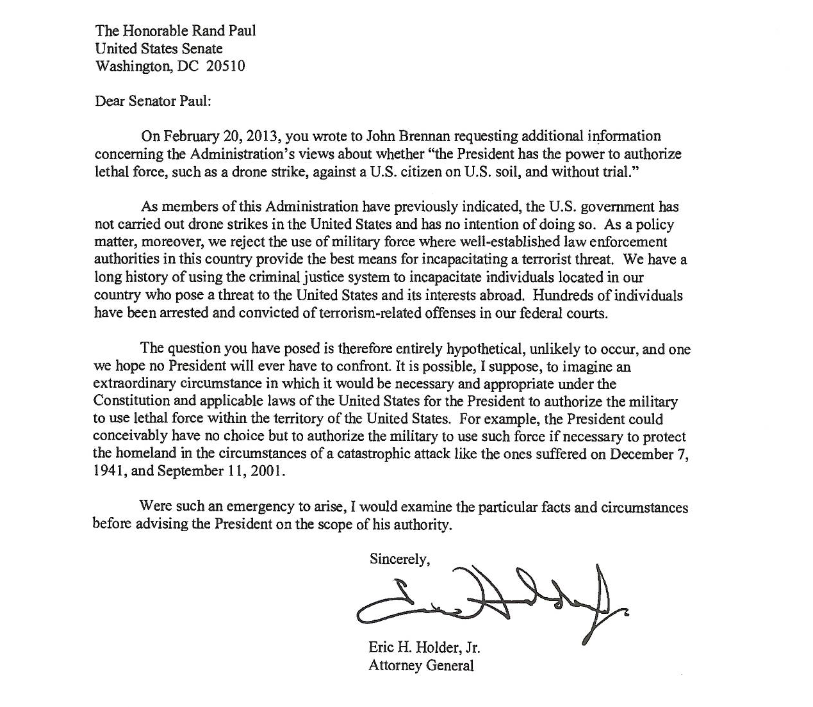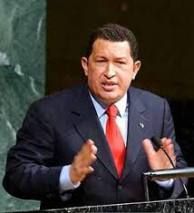Revealed: Pentagon’s link to Iraqi torture centres
Mona Mahmood, Maggie O’Kane, Chavala Madlena and Teresa Smith, The Guardian
Wednesday 6 March 2013 11.13 EST
The Pentagon sent a US veteran of the “dirty wars” in Central America to oversee sectarian police commando units in Iraq, that set up secret detention and torture centres to get information from insurgents. These units conducted some of the worst acts of torture during the US occupation and accelerated the country’s descent into full-scale civil war.
Colonel James Steele, then 58, was a retired special forces veteran nominated by Donald Rumsfeld to help organise the paramilitaries in an attempt to quell a Sunni insurgency, according to an investigation by the Guardian and BBC Arabic. After the Pentagon lifted a ban on Shia militias joining the security forces, the membership of the Special police commandos was increasingly drawn from violent Shia groups like the Badr brigades.
A second special adviser, retired Colonel James H Coffman (now 59) worked alongside Steele in detention centres that were set up with millions of dollars of US funding. Coffman reported directly to General David Petraeus, sent to Iraq in June 2004 to organise and train the new Iraqi security forces. Steele, who was in Iraq between 2003 – 2005, and kept returning to the country through 2006, reported directly to Rumsfeld.
…
“They worked hand in hand,” said General Muntadher al-Samari, who worked with Steele and Coffman for a year while the commandos were being set up. “I never saw them apart in the 40 or 50 times I saw them inside the detention centres. They knew everything that was going on there … the torture, the most horrible kinds of torture.”Additional reporting by the Guardian confirmed further details of how the interrogation system worked. “Every single detention centre would have its own interrogation committee,” claimed Samari, who has for the first time talked in detail about the US role in the brutal interrogation units. “Each one was made up of an intelligence officer and eight interrogators. This committee will use all means of torture to make the detainee confess like using electricity or hanging him upside down, pulling out their nails, and beating them on sensitive parts.”
…
The Guardian has learned that the Special police commandos unit’s involvement with torture entered the popular consciousness in Iraq when some of their victims were paraded in front of the television audience on a TV programme called “Terrorism In The Hands of Justice.” SPC detention centres bought Canon video cameras, funded by the US military, which they used to film detainees for the television show. When the show began to outrage the Iraqi public, Samari remembers being in the home of General Adnan Thabit – head of the special commandos – when a call came from Petraeus’s office demanding that they stop showing tortured men on television.
…
Thabit is dismissive of the idea that the Americans he dealt with were unaware of what the commandos were doing. “Until I left, the Americans knew about everything I did; they knew what was going on in the interrogations and they knew the detainees. And even some of the intelligence about the detainees came to us from them – they are lying.”Just before Petraeus and Steele left Iraq in September 2005, Jabr al-Solagh was appointed as the new minister of the interior. Under Solagh, who was closely associated with the violent Badr Brigades militia, allegations of torture and brutality against the commandoes soared. It was also widely believed that the unit had evolved into death squads.
There is a 5 minute digest of a 50 minute video attached to this piece. The 50 minute video is titled James Steele: America’s mystery man in Iraq and autoplays.
Who is this ‘good’ guy, Colonel James Steele?
From El Salvador to Iraq: Washington’s man behind brutal police squads
Mona Mahmood, Maggie O’Kane, Chavala Madlena, Teresa Smith, Ben Ferguson, Patrick Farrelly, Guy Grandjean, Josh Strauss, Roisin Glynn, Irene Baqué, Marcus Morgan, Jake Zervudachi and Joshua Boswell, The Guardian
Wednesday 6 March 2013 11.16 EST
On the 10th anniversary of the Iraq invasion the allegations of American links to the units that eventually accelerated Iraq’s descent into civil war cast the US occupation in a new and even more controversial light. The investigation was sparked over a year ago by millions of classified US military documents dumped onto the internet and their mysterious references to US soldiers ordered to ignore torture. Private Bradley Manning, 25, is facing a 20-year sentence, accused of leaking military secrets.
Steele’s contribution was pivotal. He was the covert US figure behind the intelligence gathering of the new commando units. The aim: to halt a nascent Sunni insurgency in its tracks by extracting information from detainees.
It was a role made for Steele. The veteran had made his name in El Salvador almost 20 years earlier as head of a US group of special forces advisers who were training and funding the Salvadoran military to fight the FNLM guerrilla insurgency. These government units developed a fearsome international reputation for their death squad activities. Steele’s own biography describes his work there as the “training of the best counterinsurgency force” in El Salvador.
…
But the arming of one side of the conflict by the US hastened the country’s descent into a civil war in which 75,000 people died and 1 million out of a population of 6 million became refugees.
…
It was in El Salvador that Steele first came in to close contact with the man who would eventually command US operations in Iraq: David Petraeus. Then a young major, Petraeus visited El Salvador in 1986 and reportedly even stayed with Steele at his house.But while Petraeus headed for the top, Steele’s career hit an unexpected buffer when he was embroiled in the Iran-Contra affair. A helicopter pilot, who also had a licence to fly jets, he ran the airport from where the American advisers illegally ran guns to right-wing Contra guerrillas in Nicaragua. While the congressional inquiry that followed put an end to Steele’s military ambitions, it won him the admiration of then congressman Dick Cheney who sat on the committee and admired Steele’s efforts fighting leftists in both Nicaragua and El Salvador.
…
In June 2004 Petraeus arrived in Baghdad with the brief to train a new Iraqi police force with an emphasis on counterinsurgency. Steele and serving US colonel James Coffman introduced Petraeus to a small hardened group of police commandos, many of them among the toughest survivors of the old regime, including General Adnan Thabit, sentenced to death for a failed plot against Saddam but saved by the US invasion. Thabit, selected by the Americans to run the Special Police Commandos, developed a close relationship with the new advisers. “They became my friends. My advisers, James Steele and Colonel Coffman, were all from special forces, so I benefited from their experience … but the main person I used to contact was David Petraeus.”With Steele and Coffman as his point men, Petraeus began pouring money from a multimillion dollar fund into what would become the Special Police Commandos. According to the US Government Accounts Office, they received a share of an $8.2bn (£5.4bn) fund paid for by the US taxpayer. The exact amount they received is classified.
With Petraeus’s almost unlimited access to money and weapons, and Steele’s field expertise in counterinsurgency the stage was set for the commandos to emerge as a terrifying force. One more element would complete the picture. The US had barred members of the violent Shia militias like the Badr Brigade and the Mahdi Army from joining the security forces, but by the summer of 2004 they had lifted the ban.
…
The commandos used the most brutal methods to make detainees talk. There is no evidence that Steele or Coffman took part in these torture sessions, but General Muntadher al Samari, a former general in the Iraqi army, who worked after the invasion with the US to rebuild the police force, claims that they knew exactly what was going on and were supplying the commandos with lists of people they wanted brought in. He says he tried to stop the torture, but failed and fled the country.“We were having lunch. Col Steele, Col Coffman, and the door opened and Captain Jabr was there torturing a prisoner. He [the victim] was hanging upside down and Steele got up and just closed the door, he didn’t say anything – it was just normal for him.”
…
General Muntadher fled after two close colleagues were killed after they were summoned to the ministry, their bodies found on a rubbish tip. He got out of Iraq and went to Jordan. In less than a month, he says, Steele contacted him. Steele was anxious to meet and suggested he come to the luxury Sheraton hotel in Amman where Steele was staying. They met in the lobby at 8pm and Steele kept him talking for nearly two hours.“He was asking me about the prisons. I was surprised by the questions and I reminded him that these were the same prisons where we both used to work. I reminded him of the incident where he had opened the door and Colonel Jabr was torturing one of the prisoners and how he didn’t do anything. Steele said: ‘But I remember that I told the officer off’. So I said to him: ‘No, you didn’t – you didn’t tell the officer off. You didn’t even tell General Adnan Thabit that this officer was committing human rights abuses against these prisoners’. And he was silent. He didn’t comment or answer. I was surprised by this.”
According to General Muntadher: “He wanted to know specifically: did I have any information about him, James Steele? Did I have evidence against him? Photographs, documents: things which proved he committed things in Iraq; things he was worried I might reveal. This was the purpose of his visit.
“I am prepared to go to the international court and stand in front of them and swear that high-ranking officials such as James Steele witnessed crimes against human rights in Iraq. They didn’t stop it happening and they didn’t punish the perpetrators.”
Steele, the man, remains an enigma. He left Iraq in September 2005 and has since pursued energy interests, joining the group of companies of Texas oilman Robert Mosbacher. Until now he has stayed where he likes to be – far from the media spotlight. Were it not for Bradley Manning’s leaking of millions of US military logs to Wikileaks, which lifted the lid on alleged abuses by the US in Iraq, there he may well have remained. Footage and images of him are rare. One video clip just 12 seconds long features in the hour-long TV investigation into his work. It captures Steele, then a 58-year-old veteran in Iraq, hesitating, looking uncomfortable when he spots a passing camera.



 Popular Venezuelan President
Popular Venezuelan President
Recent Comments